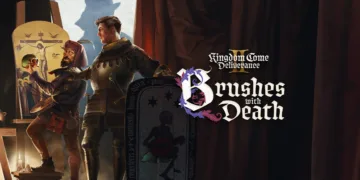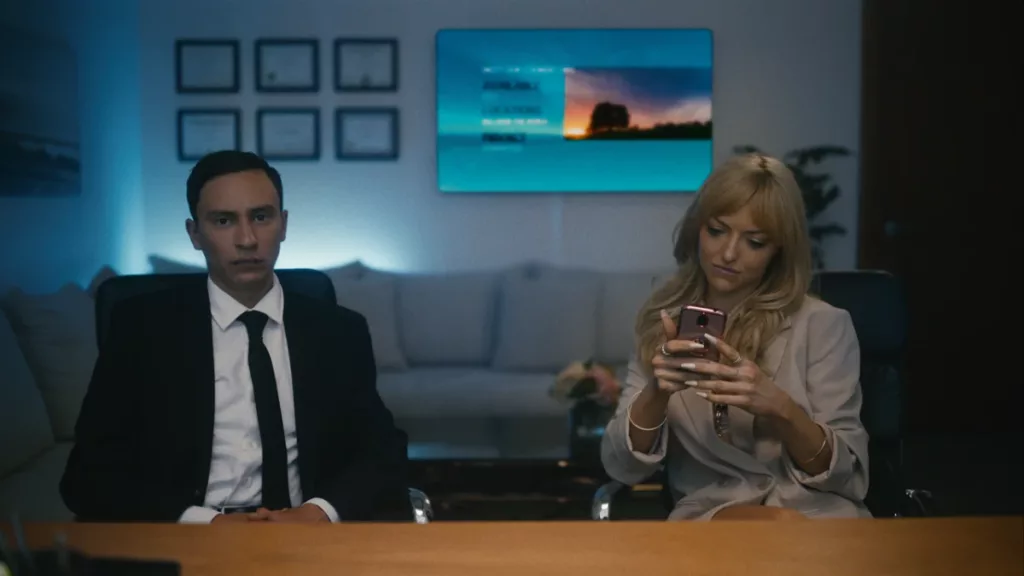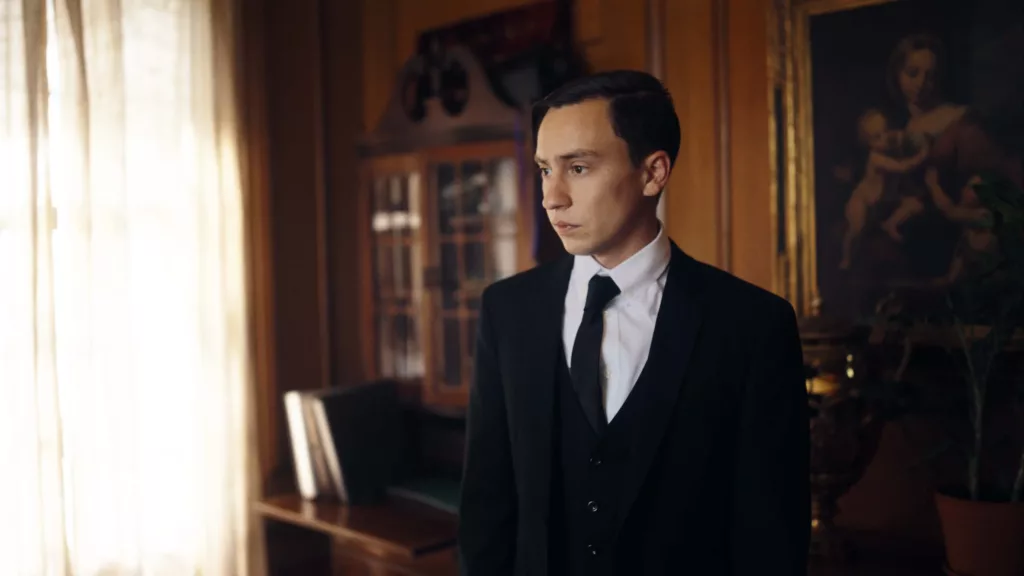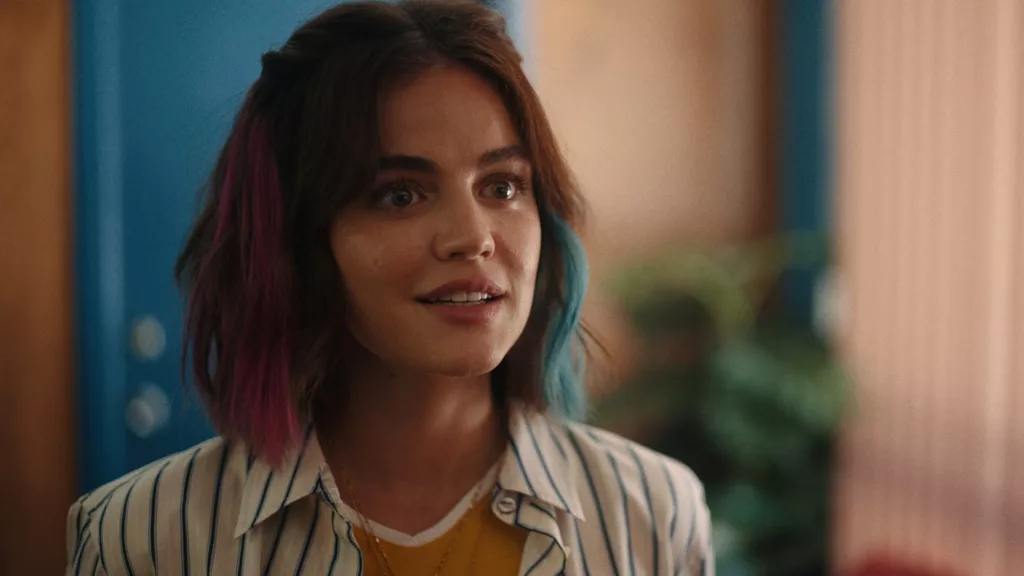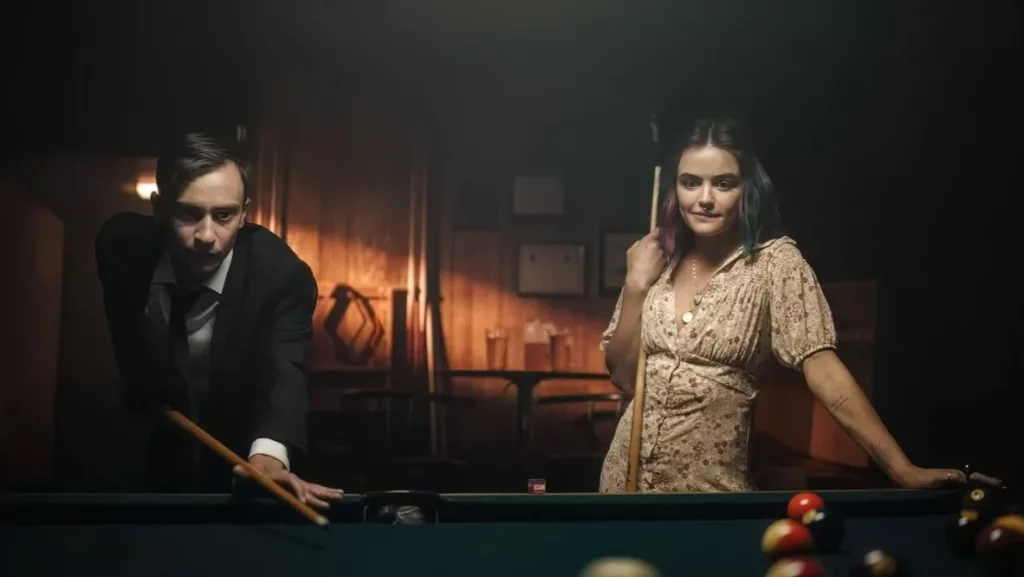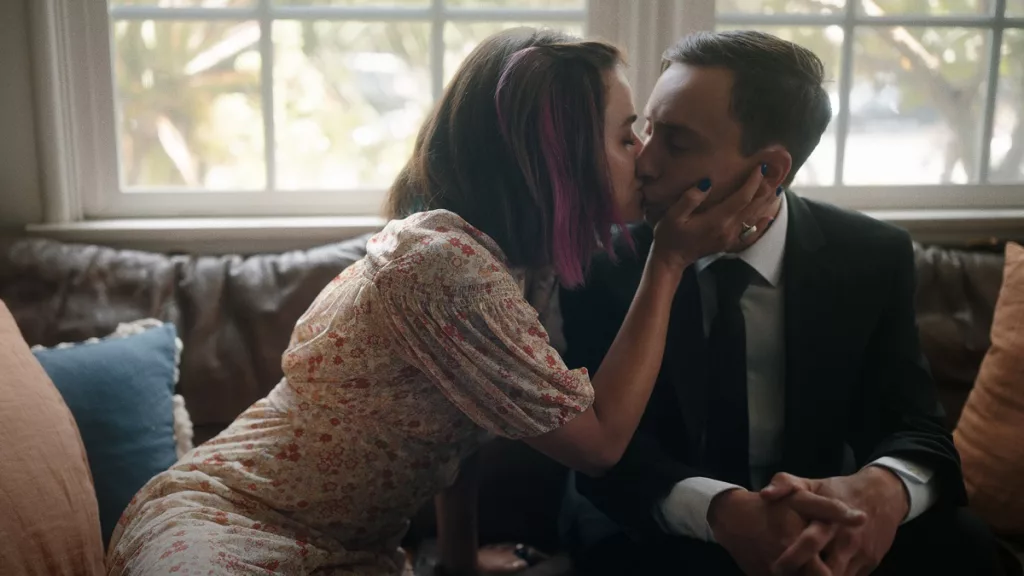The movie “Running on Empty” explores what happens when a young man named Mortimer, played by Kier Gilchrist, learns he only has about one year left to live. As a mortician, Mort’s unusual job was to prepare deceased bodies for funerals. When a new medical discovery revealed each person’s exact death date, Mort was shocked to find out his time was almost up. How would he make the most of the limited days remaining?
Directed by Daniel Andre in his feature film debut, “Running on Empty” presented this unique premise as a romantic comedy with darker elements. The story follows Mort as he searches for connection and meaning after his long-time fiancée dumps him over their divergent life expectancies. Along the way, he encounters strange characters and bizarre situations through a dating app matching people by their time left.
While the concept offered potential for interesting drama or bittersweet romance, flaws in the execution held the movie back. Andre seemed unsure whether to focus on comedy or emotional depth, giving the film an inconsistent tone. The humor often felt forced rather than funny. Without well-drawn characters or smooth storytelling to engage us, what could have been a moving examination of mortality instead felt disjointed.
Bright spots included lead performances from Kier Gilchrist as the awkward Mort and Lucy Hale as Kate, his one real friend. Yet even these talented actors struggled without stronger direction and writing to work with. In the end, “Running on Empty” never fully delivered on its initial intriguing idea due to a scattered approach that failed to bring coherence or real heart. With a tighter narrative and more fully realized characters, this film could have packed more punch.
Mortimer’s Quest to Live Fulfilled
The film introduces us to Mortimer, a mortician who finds his predictable life upended when he discovers he only has one year left. Played by Keir Gilchrist, Mort is a shy but kind soul dedicated to his work. But learning his days are numbered shakes him to his core.
At first devastated, Mort decides to embrace what little time remains. He joins an app connecting those with expiring life expectancies. It’s there Mortime connects with Lucy Hale’s Kate, seeing a glimmer of happiness.
Mortimer’s first date goes terribly awry. Meeting Leslie Stratton’s Rita at a bar, Mort fails to realize she’s an escort nearing her final hours. When Rita dies suddenly during their time together, Mort is embroiled in a surreal scenario.
He soon faces the wrath of Rita’s unhinged pimp Simon, portrayed with menace by Rhys Coiro. Simon demands money Mort doesn’t have, taking his car as collateral. This sets in motion a cat-and-mouse game where Simon relentlessly torments our hero.
Meanwhile, Mort’s ex dumps him coldly upon learning their life expectancies differed greatly. And tensions rise with estranged parents dealing with the idea of losing their son.
Through it all, one bright point is Kate. But with Simon and others dragging him down, will Mort find a way to truly start living before his time expires? Gilchrist and Hale share a sweet chemistry as two lonely souls seeking meaning.
Evaluating the Performances
From the very beginning, it’s clear Keir Gilchrist was doing everything in his power to save Running on Empty. As Mort, he brought nuanced layers to a character who could have easily become unlikeable. Gilchrist infused Mortimer with pathos and desperation that kept him empathetic even in his worst moments.
You truly felt for Mort’s plight through Gilchrist’s emotive work. But it was clear he had little to build with from the perfunctory script and Direction. Many scenes left Gilchrist hanging with no support. This talented lead deserved better utilization.
Where Gilchrist shone brightest was opposite Lucy Hale’s Kate. Together, their relationship was the most compelling part of the film. Hale matched Gilchrist’s nuance, and their chemistry sparked genuine feelings of care, joy, and sadness. It’s unfortunate so little time was dedicated to the one part of Running on Empty that worked.
In contrast, the supporting cast floundered in mostly thankless roles. Jim Gaffigan seemed to phone it in as Mort’s bizarre uncle. His purpose seemed solely to be delivering questionable lines rather than crafting a character.
Jay Pharoah portrayed the basic stereotype of “hip black sidekick” without any depth. Even lesser characters like Mort’s ex (Francesca Eastwood) received little development beyond superficial traits.
This perfunctory handling of the cast was Running on Empty’s biggest failure. It wasted the talents of Gilchrist and Hale, abandoning emotional depth for clunky caricatures. The film underserved its leads while overserving cookie-cutter stock characters.
With stronger direction harnessing its actors’ nuanced abilities, Running on Empty could have been far more moving. But as is, it primarily highlighted how even outstanding performances require a competent framework to truly shine.
A Clashing Tonality
Running on Empty strived to blend lofty ideas about mortality with edgy humor, but the conflicting tones undermined its message. The film fluctuated erratically between brooding drama and crass weirdness without smooth transitions.
When focusing on Mort and Kate’s sweet will-they-or-won’t-they dynamic, a touching poignancy emerged. But these moments felt fleeting against the tide of bizarreness. One scene saw dark throes of passion, the next slapstick misunderstandings straight out of a Farrelly Brothers romp.
The humor landed unevenly too—jokes about necrophilia or a pimp’s predatory nature came across as more unsettling than lighthearted. Scenes played for shock value rather than whetting our appetite for more laughter.
Comedic timing went awry as well, from cringeworthy putdowns disguised as “blunt” remarks to sad punchlines fizzling due to poor delivery. A feeling of tonal whiplash ensued with each outlandish subplot.
With better handling, Running on Empty could have mined laughs from the premise while retaining an emotional core. Dramatic timing seems an afterthought compared to gags that fell flat. More poignant moments leaning into the stars’ talent and chemistry were too brief.
By favoring zaniness over weightier themes, the film struggled to leave a lasting impression. Its lofty ambitions collided with execution that lacked cohesion. While pushing boundaries isn’t wrong, Running on Empty may have better explored mortality’s gravity had it avoided gratuitous shocks at drama’s expense. An unclear tonal vision undid its prospective charms.
A Missed Opportunity to Consider Mortality
Running on Empty held promise to engage deeper questions about life’s fleeting nature. The thought of knowing exactly how long you have left could stir introspection on purpose and legacy.
Yet for Mort and the film itself, this avenue remained vaguely explored. While the concept intrigued, the movie became sidetracked by bizarre tangents that drained profundity.
Subplots like Mort’s debt to a violent pimp moved mortal issues onto the fringes rather than their rightful centerstage. Meanwhile, only brief scenes of our hero and Kate hinted at reflective soul-searching.
Their chemistry created rare moments to ponder existential dilemmas of our finite time and relationships’ meaning. But such material barely featured, given short shrift in place of farcical, base distractions.
With focus kept on Mort and Kate’s will—they won’t—they, deeper matters could have emerged of their desires, regrets, and what really defines a life well lived. Alas, meaningful threads got lost amid tonal shifts and one-dimensional side characters.
So while death’s certainty was the launch point, the film ultimately conveyed little insight. Its theme of purposeful living even in death’s looming shadow went mostly unrealized.
A tighter script keeping subplots minimal could have mined emotional depth from its fascinating concept. But as is, Running on Empty mostly squandered opportunities for contemplation in favor of disjointed absurdity. It’s a missed chance to provoke life’s profound mysteries.
A Wasted Opportunity
Running on Empty contained flashes of promise, thanks to its cast and high concept premise. But flaws in craftsmanship undercut bringing these ingredients together cohesively.
The screenplay spread its focus too thin, bombarding viewers with half-baked characters while neglecting developing its leads fully. One-note archetypes like the crude uncle warranted far less attention than Mort and Kate’s will-they relationship.
Choppy editing hopped aimlessly between disparate scenes and subplots. Transitions felt jagged rather than seamless, further fracturing what coherence existed. Story beats seemed thrown together haphazardly rather than building in a satisfying arc.
As director, André guided less with a steady hand than as traffic cop struggling to wrangle mayhem. Technical elements like cinematography and music existed forgettably instead of enhancing emotional resonance. Visuals brought a little distinct flair and tunes blended into the aural wallpaper.
With focus maintained on its stars’ sweet chemistry and the intriguing dying-man finds-love narrative, Running on Empty might have soared. Tighter writing, developing those elements instead of diversions, could have led to a cohesive, touching experience.
But as it stood, absent stronger construction and Daniel André coming into his abilities as storyteller and director, Running on Empty remains an intriguing idea hindered by uneven handling. Its potential went lamentably unrealized due to technical and craft shortcomings.
A Concept Undone by Execution
The underlying idea of Running on Empty, exploring how we’d live if knowing our precise death date, provided fertile ground for drama or reflection. As inconsistencies in tone and poorly drawn characters ensured the movie failed to deliver on its potential.
By shifting erratically between zany humor and disturbing sequences without smooth transitions, the film struggled to find an identity or engage viewers emotionally. Potentially poignant themes received short shrift amid a chaotic barrage of underbaked subplots.
Keir Gilchrist and Lucy Hale offered flashes of promise as leads whose connection could have anchored the film. But inconsistent direction and a patchwork script neglected characters in favor of shallow shocks. Without nuanced arcs to develop its stars, Running on Empty floated by on premise alone.
With a tightened focus on its fascinating core narrative instead of myriad diversions, maybe this story of a man racing mortality could have packed real punch. As it stood, the concept felt half-baked, its message drowned out by a slapdashed approach.
While the underlying idea of death dates imparting purpose was compelling, bungled handling meant viewers left mostly perplexed rather than moved. In the end, Running on Empty proved an aimless experience that squandered a fantastic premise through muddled creative choices. Its lofty ambitions exceeded its uneven execution.
The Review
Running on Empty
With an inventive premise but inconsistent tonal shifts and thinly written characters, Running on Empty spins its wheels, failing to realize heartfelt drama from thought-provoking material.
PROS
- An intriguing concept exploring mortality
- Keir Gilchrist and Lucy Hale's performances
- Occasional emotionally impactful scenes
CONS
- Inconsistent shifts between drama and crude humor
- One-dimensional characters
- Poor character development
- Scattered, disjointed plot
- Wasted creative potential



































